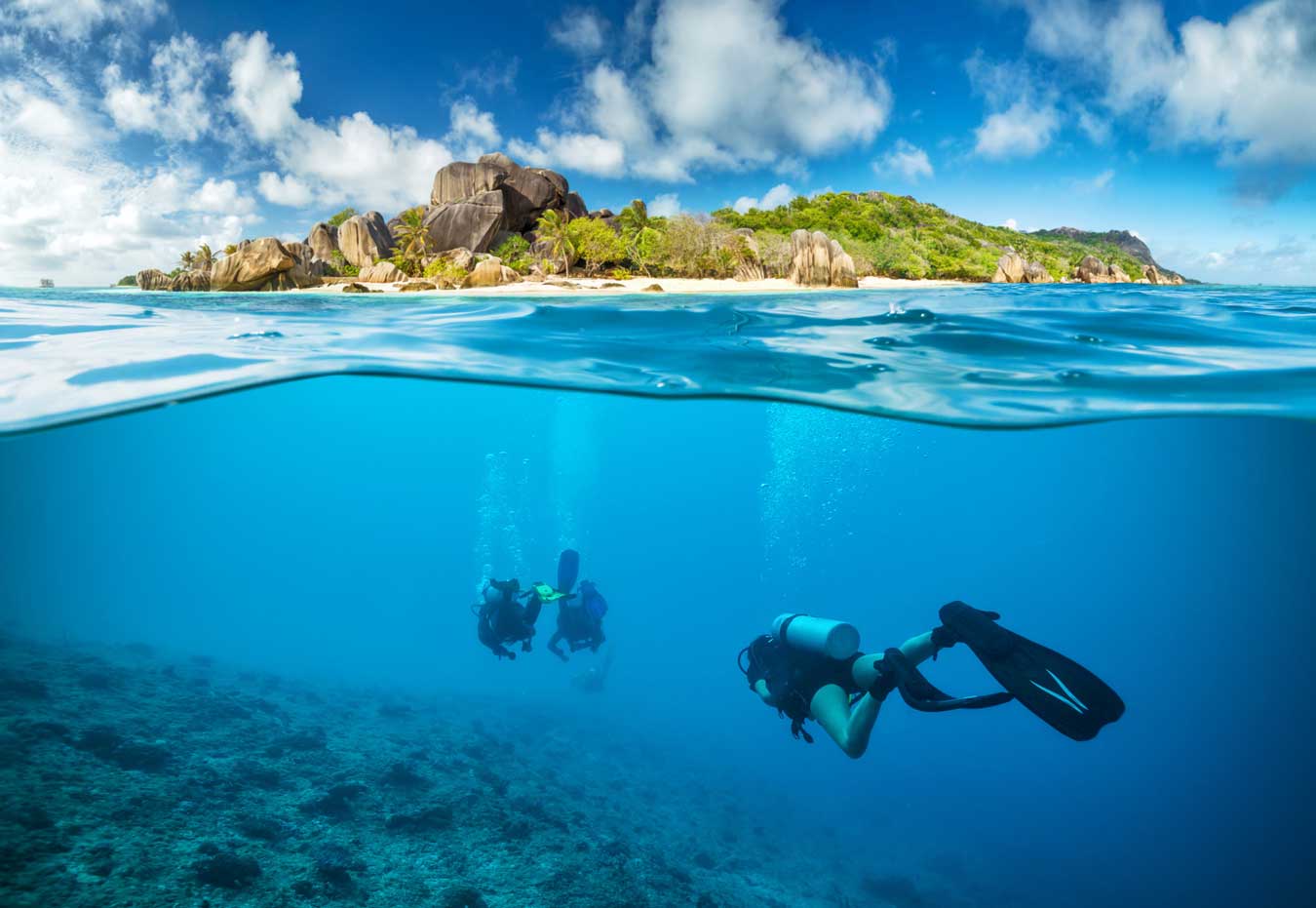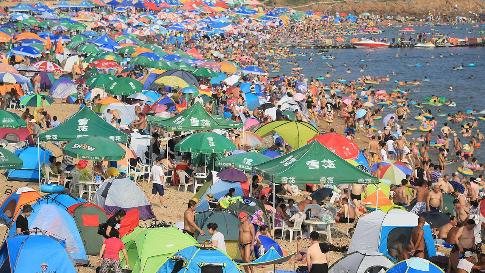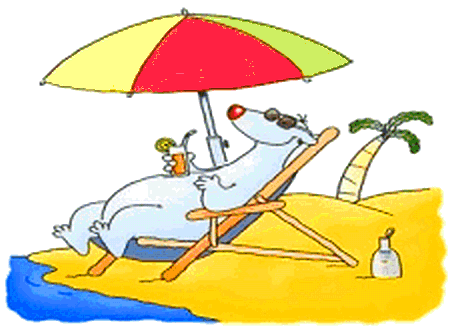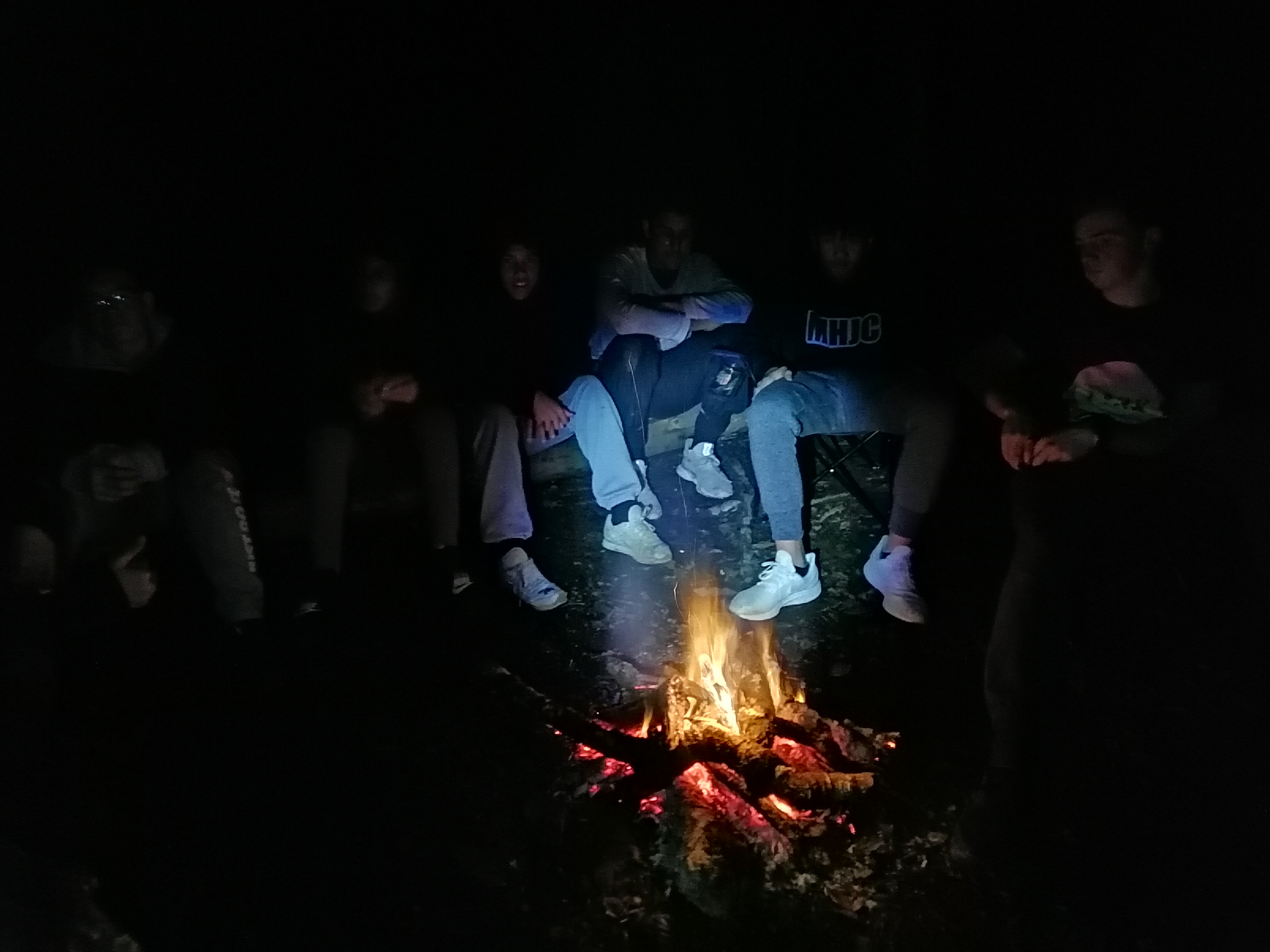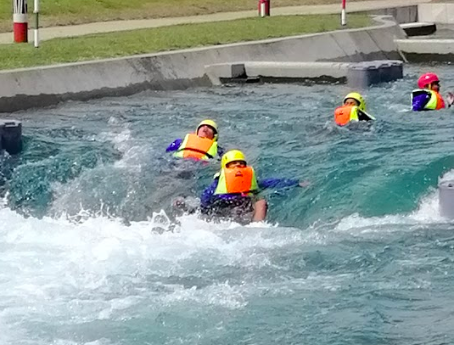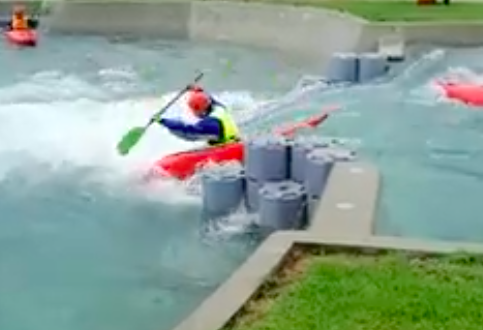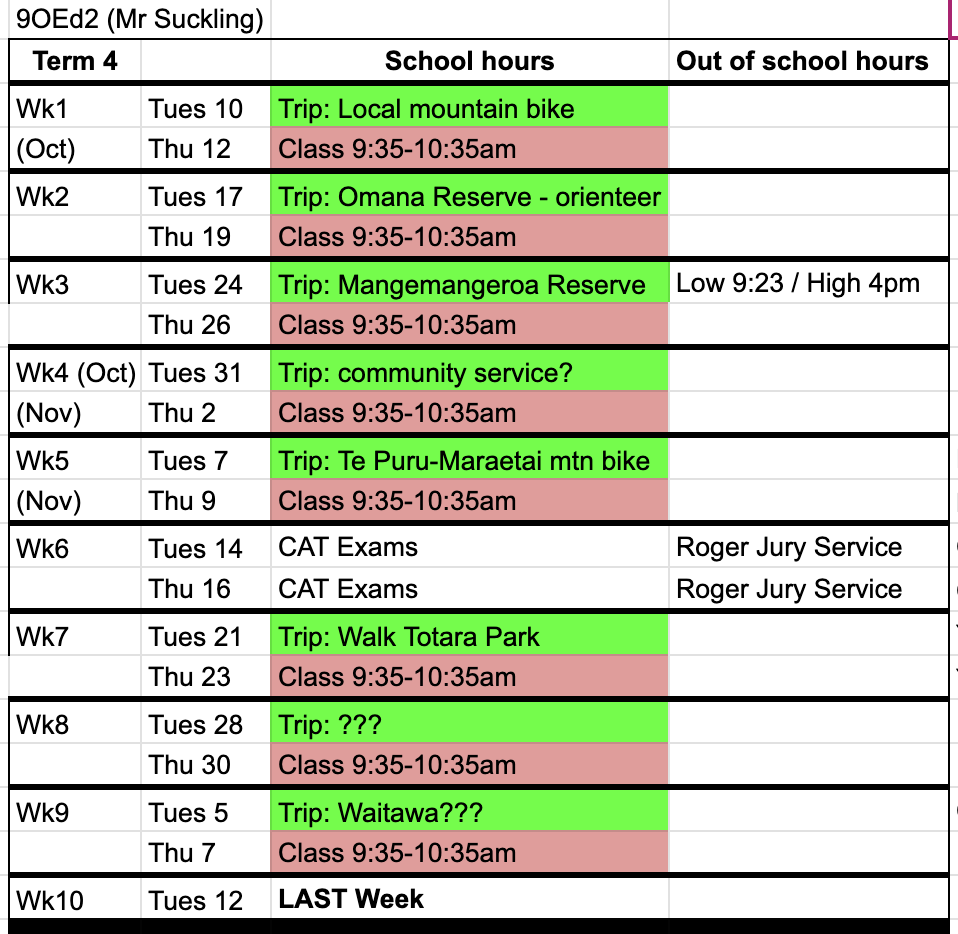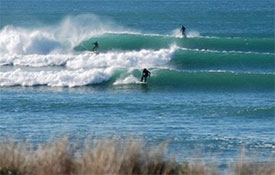9 Outdoor Education 2
Section outline
-
This year, you will:
- build knowledge, skills & attitudes for success
- enjoy challenging outdoor activities
- learn to succeed in unfamiliar situations, both individually and in groups
- co-operate, solve problems, communicate, lead, take responsibility
- understand how we can sustain a healthy environment
- have the opportunity to achieve the William Pyke Award
Our course is guided by the NZ Curriculum .
Level 5 Heath & PE relevant achievement objectives:
A2 Experience a range of enjoyable physical activities and describe how involvement affects well-being and lifestyle balance.
A4 Investigate & practise safety procedures & strategies to manage risk situations.
B1 Acquire & apply complex motor skills by using basic principles of motor learning.
B2 Develop skills and responsible attitudes in challenging physical situations.
C3 Demonstrate interpersonal skills that help to make safe choices in a variety of settings.Level 5 Science relevant Achievement Objectives:
Summary of activities:
Investigate interdependence of living things (incl humans) in an ecosystem
Level 5 Social Sciences relevant achievement objectives:
Understand how people’s management of resources impacts on environmental and social sustainability.
Term 1: Team ABL problem solving, water safety & sports, navigation
Term 2: Tramping, campcraft & overnight camp, environmental sustainability
Term 3: First Aid, trip planning, weather
Term 4: Mountain biking
Assessment:
You'll be self and teacher assessed, based on observations and learning journal reflections:
- how much your skills progress over time
- how much knowledge you gain & apply
- your attitude & team spirit in challenging situationsFocus AOs Assessment Team building (ABL)
Water safety & activities
Enviromental Sustainability
William Pike ChallengeTeam building & Interpersonal Skills,
Positive Attitudes,
Enviro Sustainability knowledge & contributionMountain Bike,
Tramp / overnight camp,
Survival
William Pike ChallengeSafety Management,
Physical activities & motor skills
-
Assessment Instructions and Task:
During terms 1 and 2 in Outdoor Education, we’ll participate in Adventure Based Learning (ABL) and survivor activities to develop a range of interpersonal skills and responsible behaviours, ready for our Survivor Challenge and overnight camp.
You’ll need to use interpersonal skills, which involves communicating and working with others effectively, using clear communication, teamwork, leadership, and problem solving. Responsible behaviours involves taking ownership of your actions and decisions, such as being trustworthy and accountable for your actions.
In outdoor education, we also protect and take care of nature, including ourselves, plants and animals. You’ll take part in planting and maintaining trees, and keeping our parks and beaches clean and beautiful.
You are required to:
Actively participate in the Survivor Challenge activities and the lessons on camping skills and preparation.
Verbally describe what interpersonal skills and responsible behaviours you’ve demonstrated, and how this contributed to your team’s success.
Actively participate in conservation activities. This includes explaining, with examples, what conservation is, such as: protecting animals and plants; using resources wisely; reducing/reusing/recycling ‘waste’; global impact; saving habitats; stopping pollution; involving everyone to help; spreading awareness.
-
Year 9 Outdoor Education Assessment 2
Assessment Instructions and Task:
In Year 9 Outdoor Education every student will take part in the William Pike Challenge.
Every student will have the opportunity to participate in at least 5 scheduled outdoor activities. Students will also contribute to the community and the environment by participating in community activities and projects - Over 50% of the hours can be achieved through school service activities and the remaining will be in their personal time. The last element is the passion project, this is a hobby or a sport that is totally new to the student and requires at least 20 hours or recorded project time. The students may do more than one passion project.
All tasks will be recorded in students’ William Pike Journals.
Your assessment task:
You are required to:
Actively participate in the William Pike Challenge - completing all 3 elements:
Outdoor Activities (5 Activities)
Community Service (20 hours)
Passion Project (20 hours)
Record this in your William Pike Journal
-
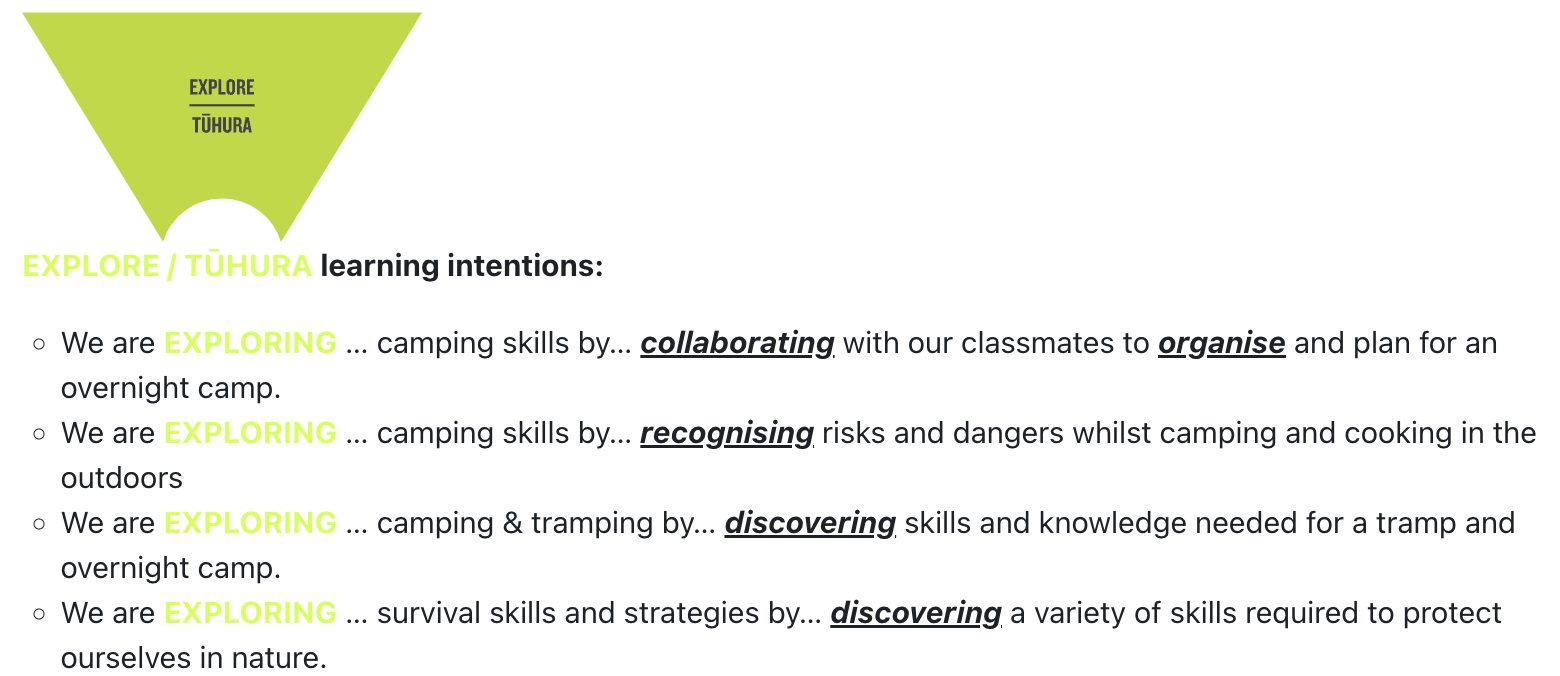
This term's activities include Team building ABL challenges, first aid and orienteering.
Schedule of days & times.
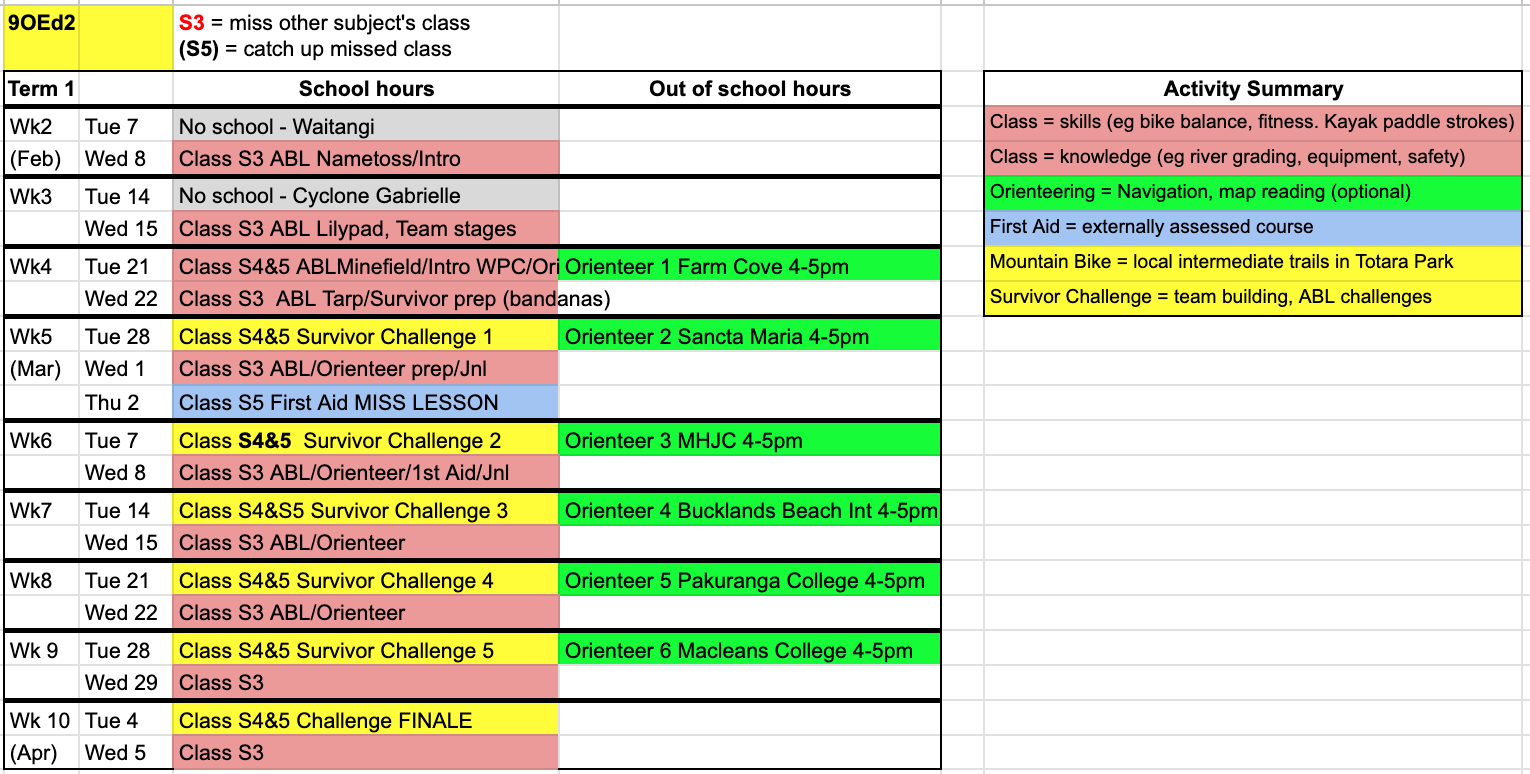
-

Team Building

Learning Intentions
- Start to 'Form' our class as a team
- Build relationships (learn names, etc)
- Investigate different personalities
Success Criteria
- We've learned students' names
- We've worked together to solve problems
- We see that all personalities in a team is best
ABL: team building activities
We'll take it in turns to run a problem solving challenge (ABL game).
One idea is the 'Time bomb' game:All form a circle and each say their name.
One throws a ball to someone, who has 2 seconds to say another’s name and throw the ball to them, before it “explodes” and they are out of the game. Continue until only one student remains.Forming Teams
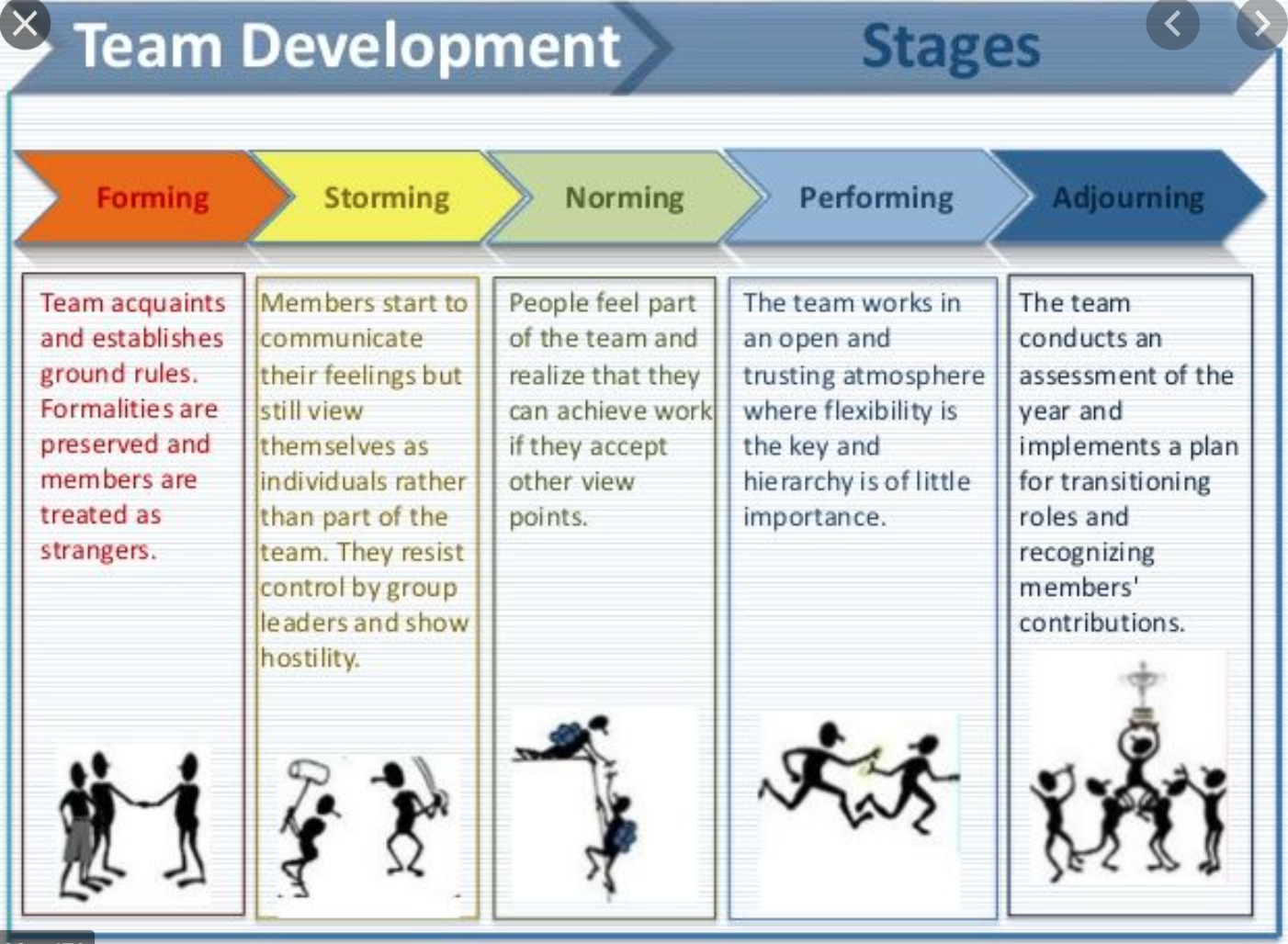
Think about what stage our class team is at.
Here's a short video clip on Stages of Team Formation
Contribute to this shared Google Doc in Google Classroom called 'Building a Team'.- add a photo of something that represents who you are as a person
- give info about yourself (eg a strength or skill, something you did that worried you)
Interpersonal skills
Communicating effectively is essential if your team is to succeed.
Communication can fail if:
- the message is . .
- the medium is . . .
- the 'sender' is . . .
- the 'receiver' is . . . - Start to 'Form' our class as a team
-
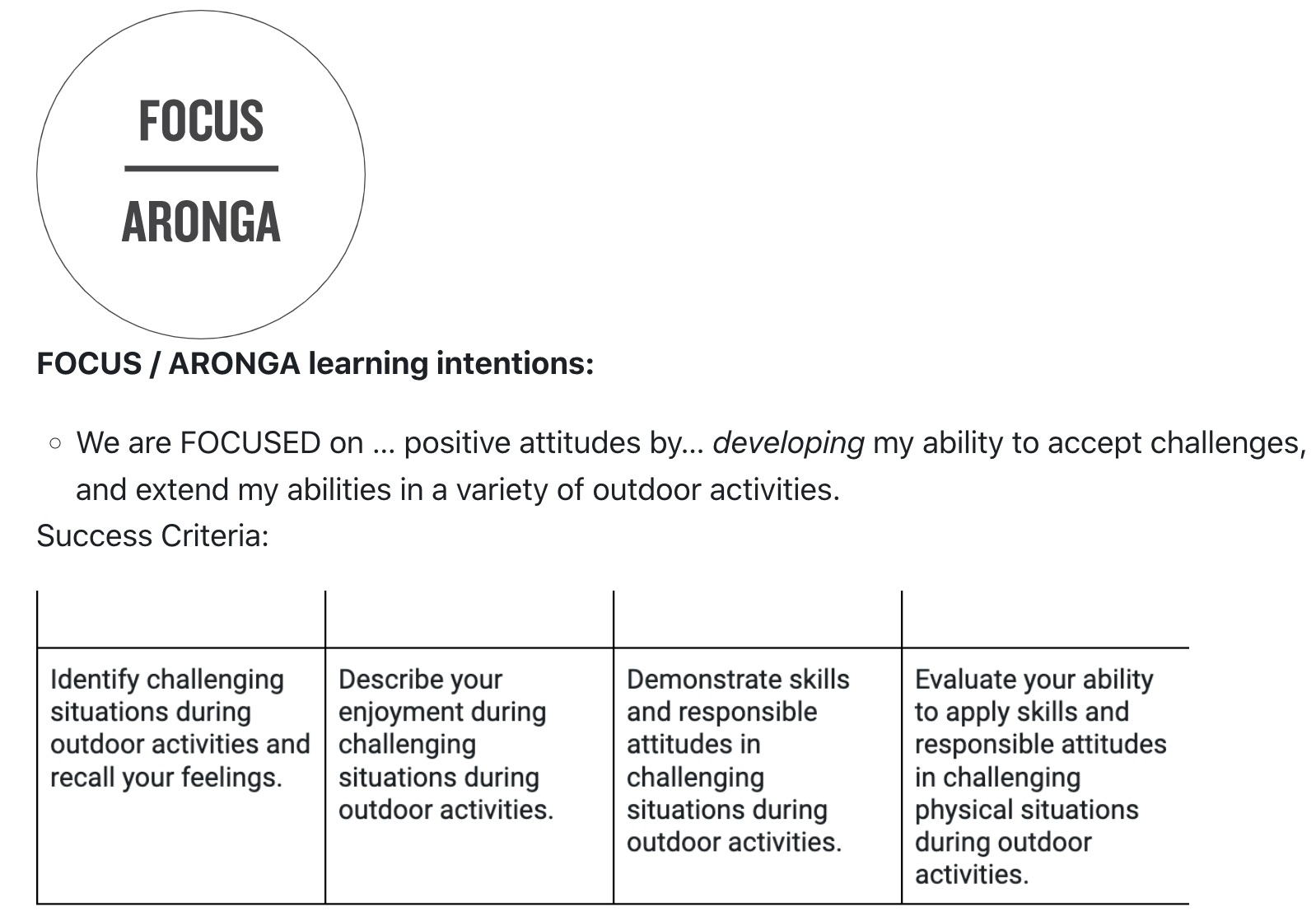
Learning Intentions

- To learn how symbols on a map represent real world features
- To navigate between points on a map, using distance, contours & features
Success Criteria
- I can orientate a map, navigate safely and quickly to various points, and manage being lost
- I've worked together with others to solve problems in a real world setting
Map Reading
Have a look at the map below. Look at each coloured circle and use the 'key' of symbols to work out what you'd see on the ground. For example, control point 1 shows a small green circle; what would you see if you walked to this point?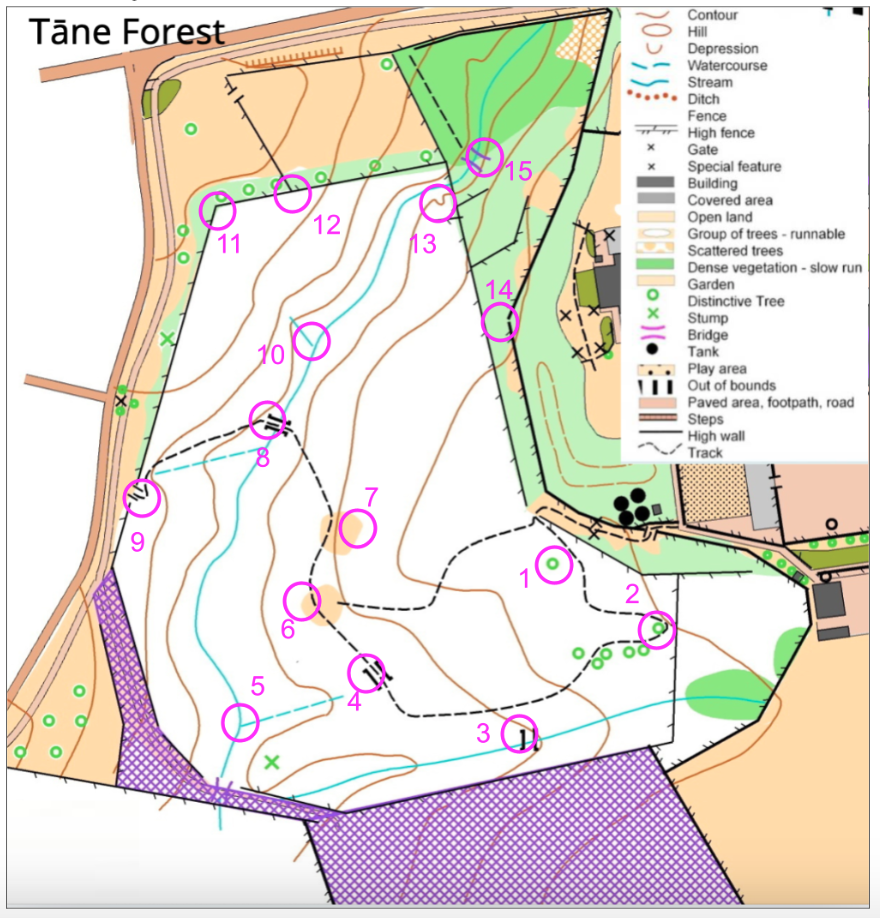
Here's a map of MHJC school grounds. We'll use this map to both set and use orienteering courses.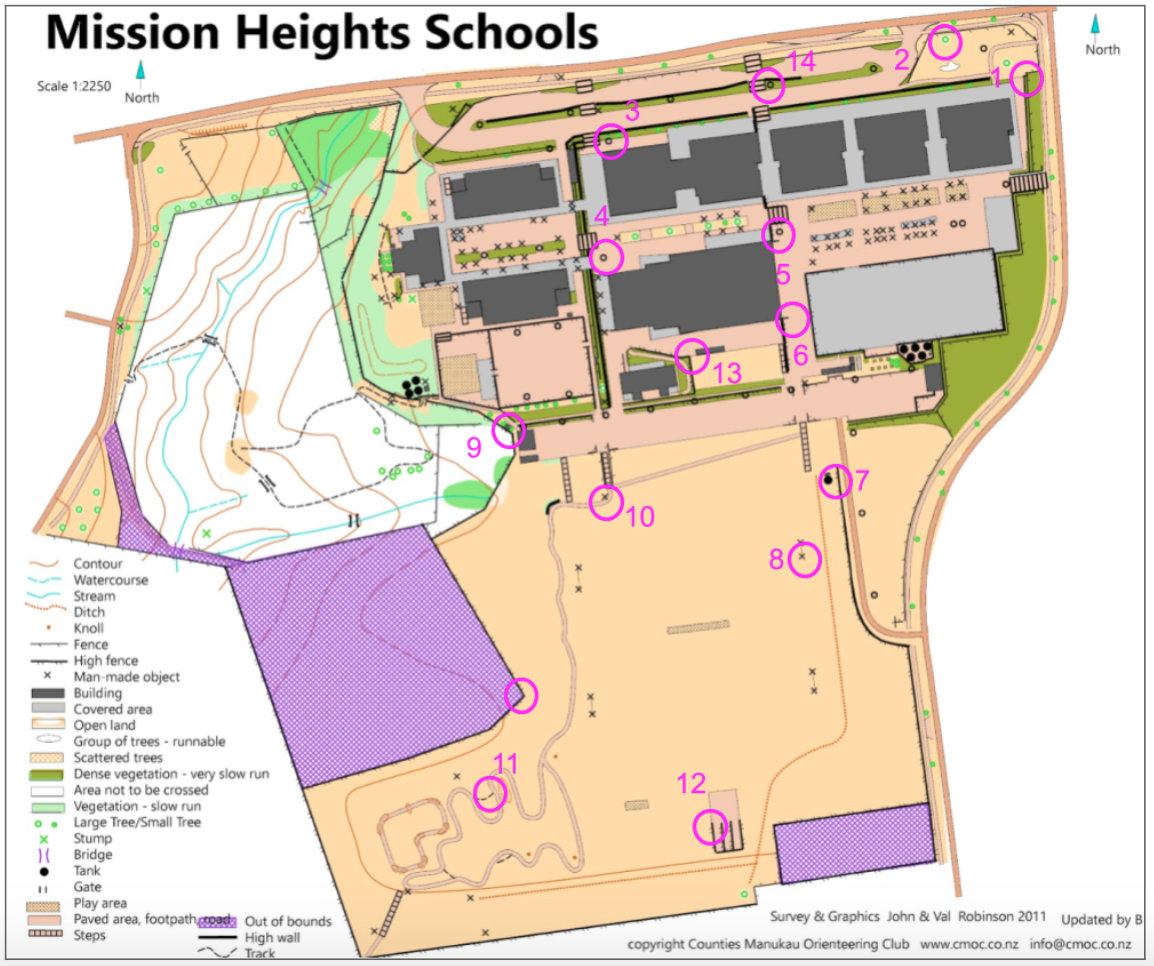
Tactics / Skills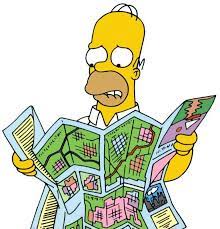
Here are some tactics to avoid you getting lost or missing a control point:- Orientate your map so that directions match the real world.
- Use a stream, fence or tree line as a 'handrail'
- Choose an obvious feature that, if you meet it, you'll know you've gone too far.
- Keep your thumb on the map at the last point that you knew where you were.
- It may be quicker and safer to take a longer path, rather than a shorter bushbash!
- Learn the map symbols so that you know exactly what you're looking for.
- Set a direction on a distant object, rather than looking close to you.
- . . . and many more that you'll work out with practice :)
- To learn how symbols on a map represent real world features
-
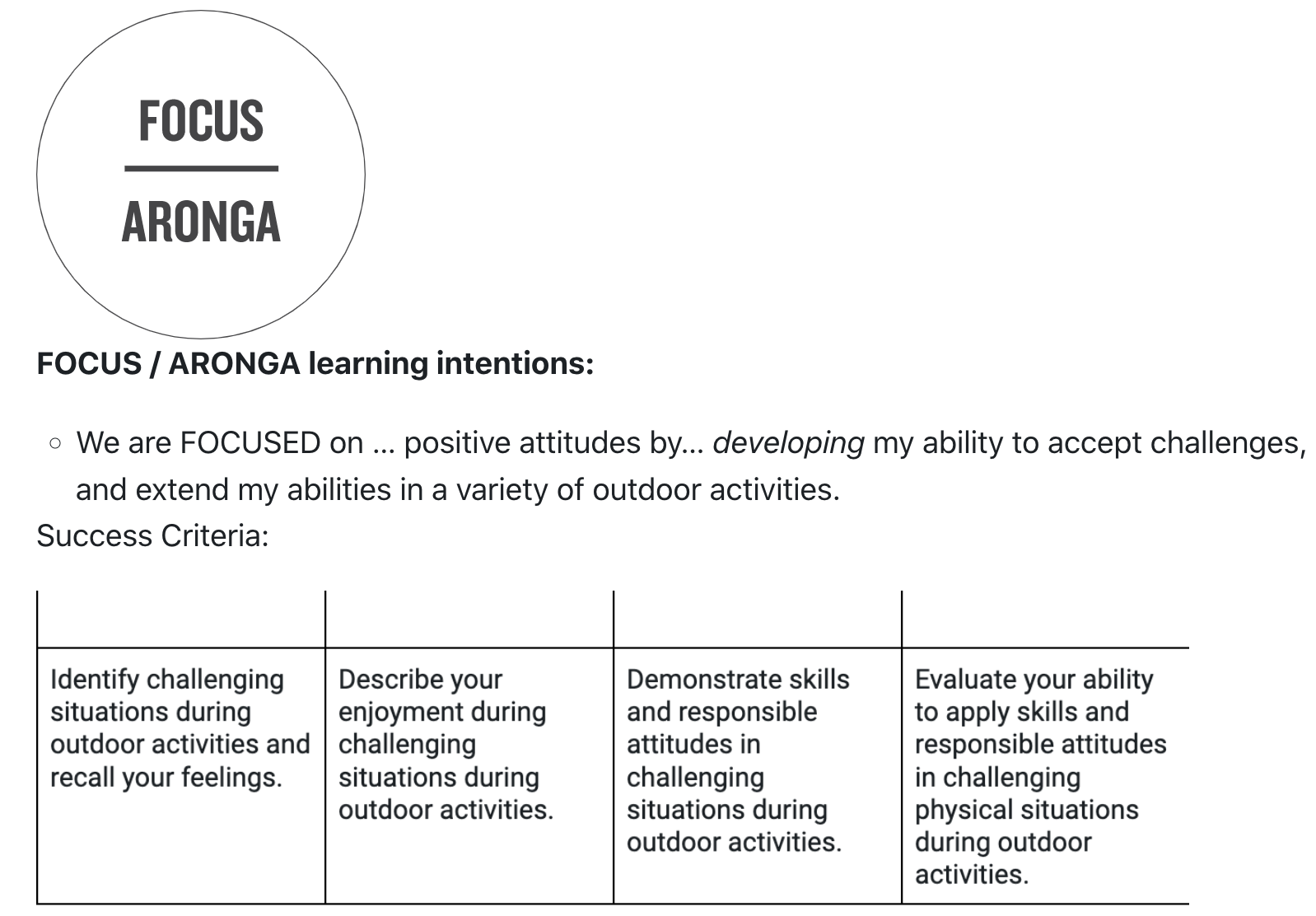
This year, you can gain a nationally recognised award called the William Pike Challenge.
1. Outdoor Activities (minimum of 5), which must:
Over the year, you must provide evidence of contribution, commitment and improvement in:- be outdoors, off-site, and run by the school during the school year
- challenge you with more than 2 hours of purposeful effort
- be human-powered (no engines!)
- develop your
- leadership & team skills,
- independence,
- health & wellbeing,
- ability to enjoy the outdoors safely
- overcome challenges & make decisions with real consequences
- be unpaid & at least 20 hours locally (and can be different types).
- not be helping for-profit business, at home (eg babysit), school chores (eg rubbish pick)
- be a skill, hobby or sport that is totally new to you
- be at least 20 hours (and can be one or more)
- be in your own time (with some school options time if appropriate).
- develop your ability to learn and master a new skill

-
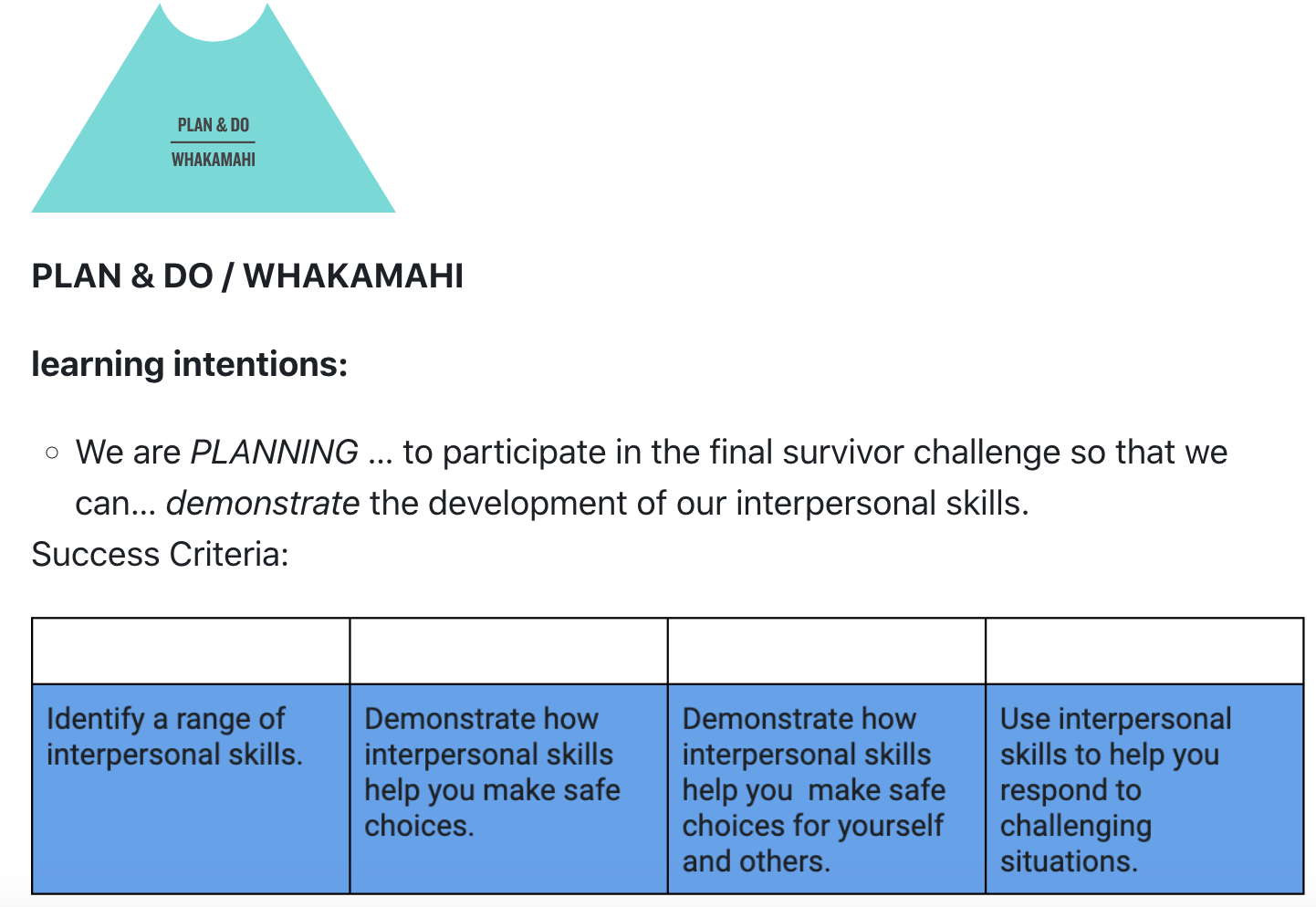
Here are some photos of the Survivor Challenge Finale!

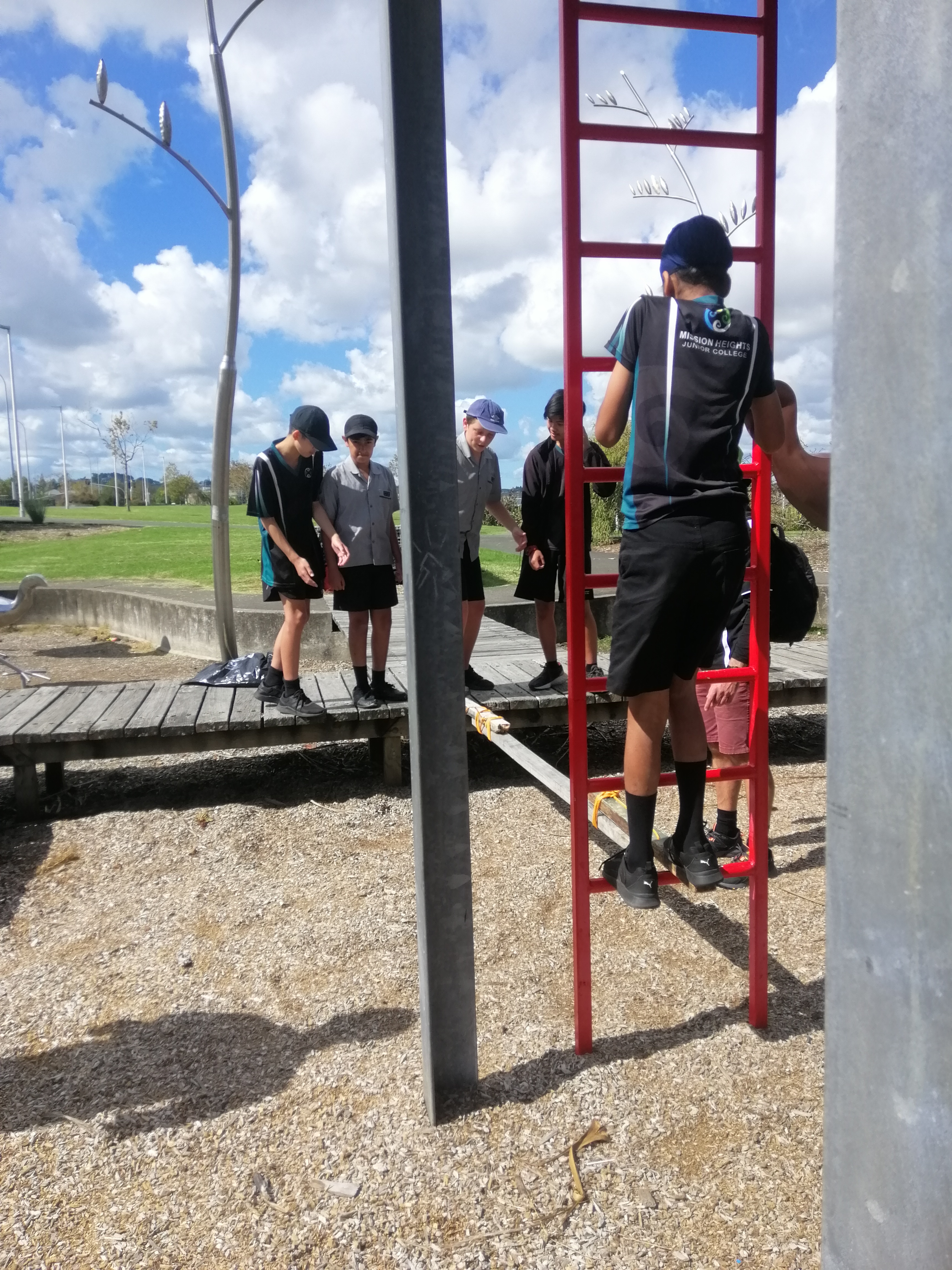
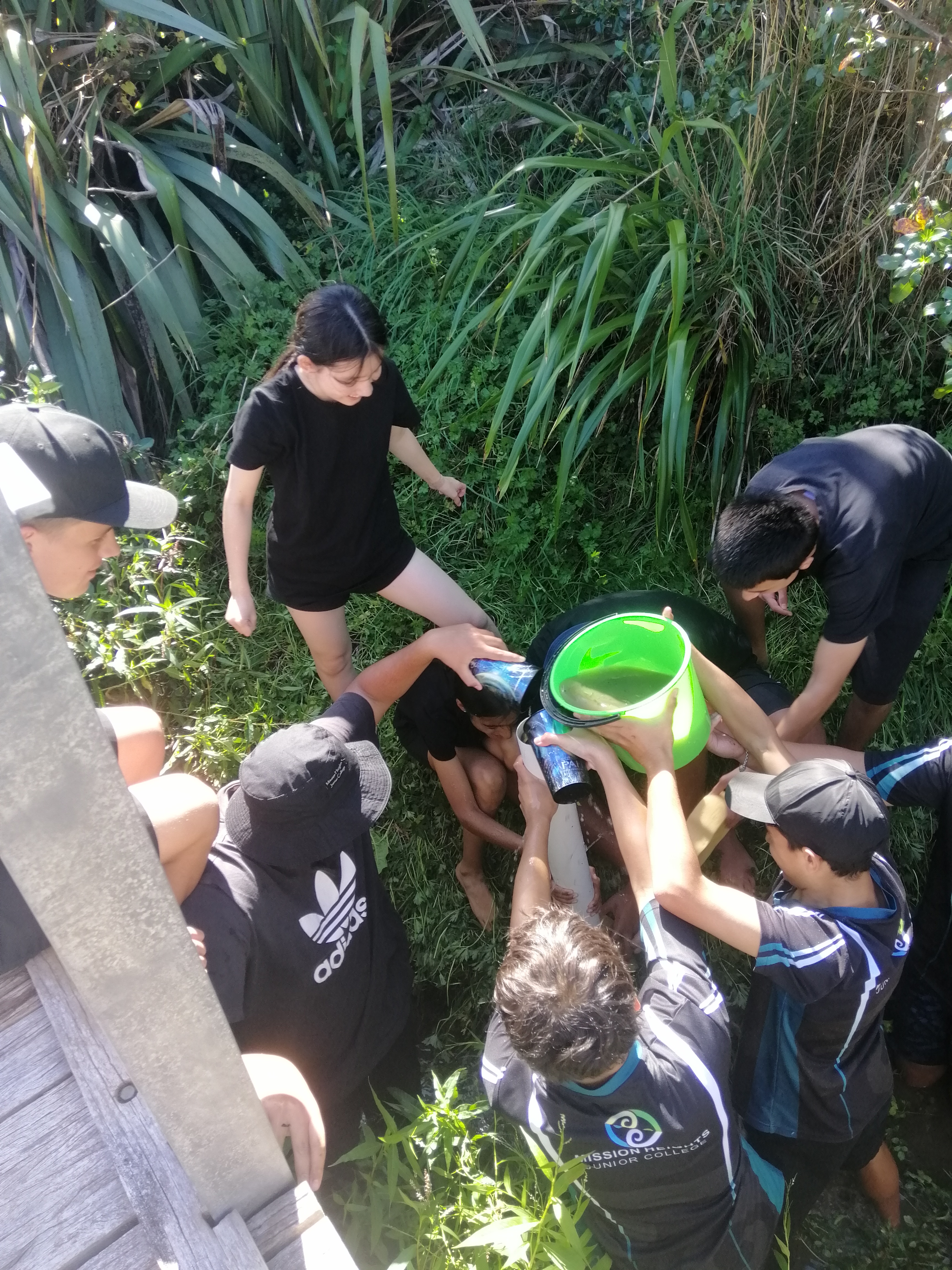
-
Activities include community service, campcraft for overnight, navigation & weather).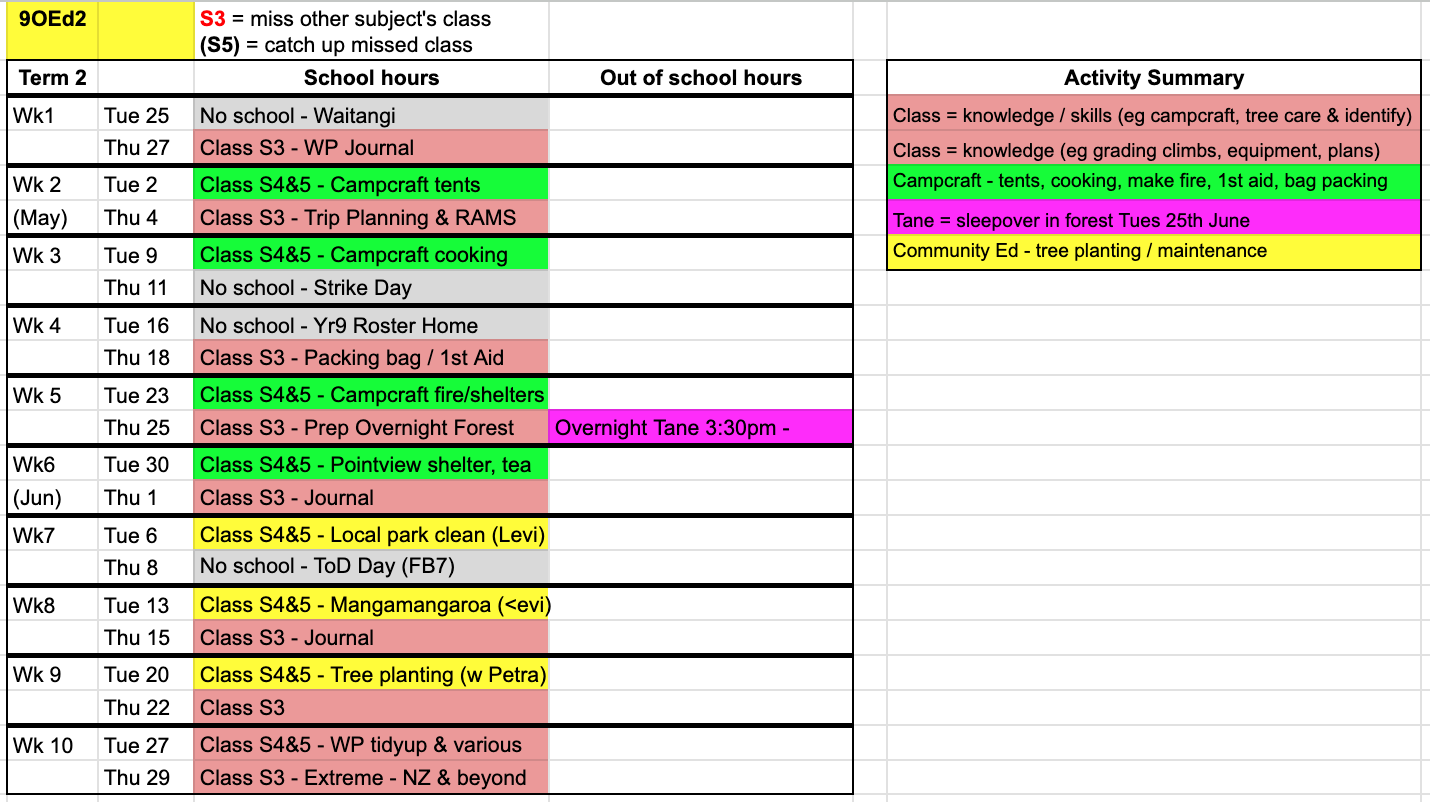
You'll plan and manage risks of our day tramp, and camp overnight in tents.We need to revise our First Aid training.
Whilst learning about these topics, we'll keep recording hours for our William Pike Challenge in Community Service, Passion projects and outdoor experiences.
-

Here we talk about equipment to take on an overnight tramp, and put up tents in Tāne Forest.

There's useful info at this NZ Mountains Safety Council site
https://www.mountainsafety.org.nz/learn/activities/multiday-tramping/Here's a suggested gear list from Tararua Tramping Club
https://www.ttc.org.nz/pmwiki/pmwiki.php/Bushcraft/GearListThis week, we'll toast marshmallows over a camp fire!!
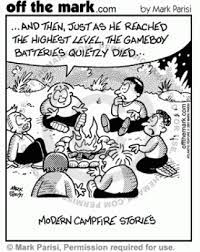
Start with small, dry kindling, and build up the size of wood slowly.
Any recent wet weather will not have helped!
Be patient.
Tents
Tramping tents must be light, waterproof, easy to put up, strong (in winds).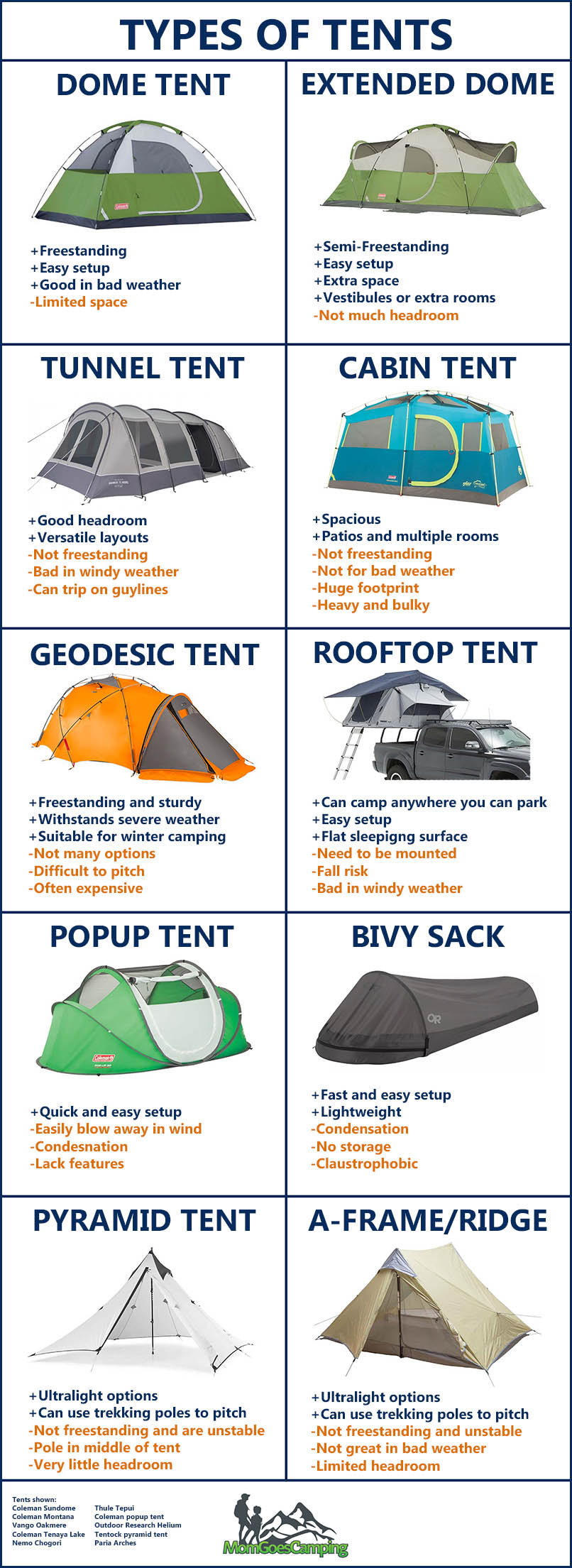 Pros & cons of tramping tents
Pros & cons of tramping tents
Usually they have an internal layer, made from a breathable net fabric, and a waterproof outer 'fly-sheet'.
It's important to pitch your tent on level ground in a place that won't flood (riverbed or 'bowl'), that is sheltered from the strongest winds, and that is not under dead branches, loose rocks or epiphytes.
Keep spare pegs, tent & pole bags, etc in the tent.
Never leave rubbish or food around the tent - take it home!
A lot of body warmth can be lost through the ground.
Always lie on something insulated like a foam roll mat (or leaves!).
Cooking
This is a high risk activity when camping.
Hot liquids can spill; naked flames can spread.
We use gas stoves, which must be used on level ground. NEVER run or be silly near cooking areas.
Cook away from the tent (or in the shelter of the entrance, if you really have to). Never inside the closed tent.
Food
Hygiene is very important - wash hands and follow food storage guidelines.
Pack light and small - dried food meals, no tins, etc.
Boil or purify (with a tablet) water from lakes or streams.
It can contain Giardia. -
 This video clip will help us make notes on how we can reduce risk:
This video clip will help us make notes on how we can reduce risk: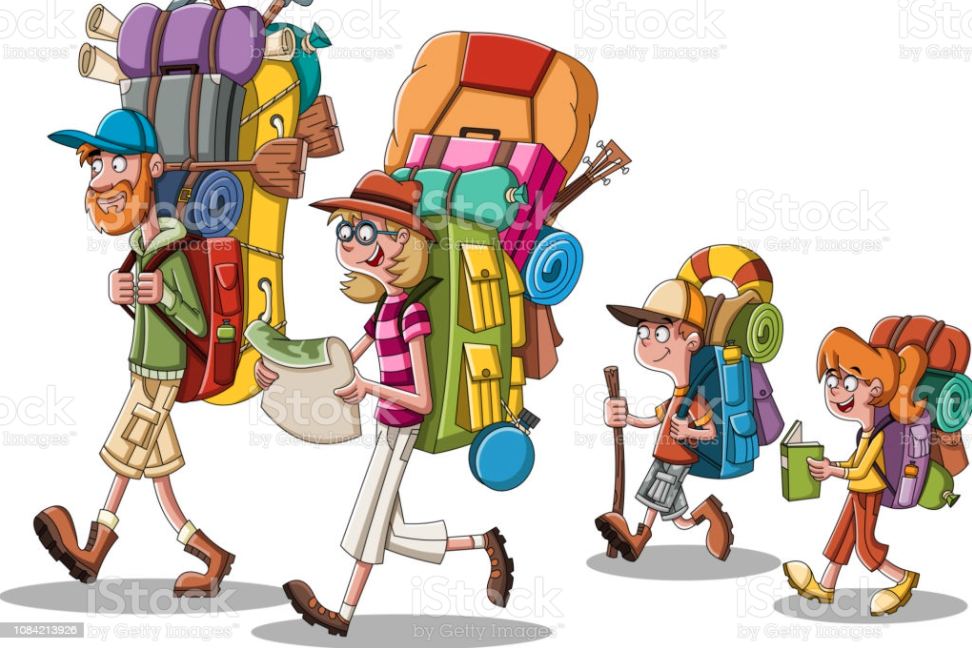 Before leaving on an adventure
Before leaving on an adventure
During the trip, especially if we get lost, tired or injured and can't continue
After the trip, when we finish
Parts (minutes): 6-10:30, 12-12:30, 14-14:25, 15-16:30, 17:18-18:50Before going on a trip, it's good to prepare a RAMS form.This stands for Risk Analysis Management Statement.It helps you make sure that you have thought of what might happen and what you need to keep safe.
Task on Google Classroom: "Planning a Trip so it's safe"
Here's a video by Ray Mears about surviving in the NZ outdoors.
As you watch the video, add to your notes on Joe Baugardner in the shared GDoc issued in GClassroom.
It outlines some mistakes made by a father & son on a tramping trip.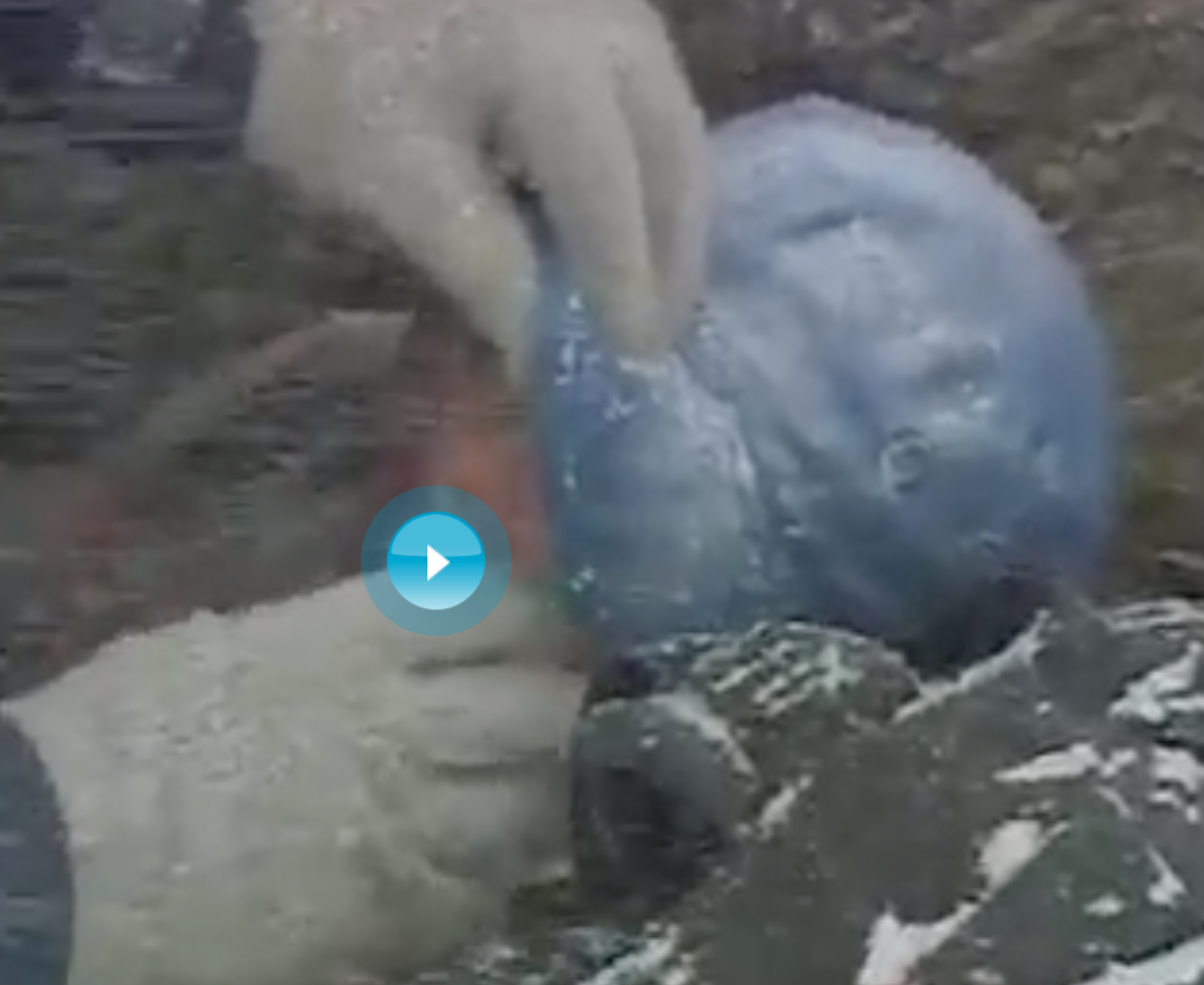
https://www.veoh.com/watch/v6336204t9Qxdwas
Extract (minutes) 2:16-8:05 mins
Extension activities:- Find Waipakihi Hut on DoC's internet info and find it in Google maps.
- Find the Urchin & Umukarikari Tracks.
- Watch the above Ray Mears video at the following places:
Building a shelter extract (21:30 mins)
Making fire from wood extract (24:27 mins)
-

Learning Intention: To show understanding of weather forecast information.
Success criteria:- Describe types of weather information available from two different sources.
- (48hr / multi-day / wind / rain forecasts, rain radars, hourly observations & forecasts, satellite imagery, severe weather watches and warnings from internet, TV, newspaper, radio).
- Identify weather map symbols.
(highs, lows, fronts (warm, cold, stationary, occluded), isobars. - Describe highs, lows, fronts (warm, cold, stationary, occluded) & isobars.
Success criteria:- Obtain a weather forecast for the location for a planned outdoor recreation activity.
- Describe actions that could be taken for an outdoor activity in
response to a weather forecast.
(clothing & equipment to take, location selection, decision to go or not to go).
https://www.nzqa.govt.nz/nqfdocs/units/pdf/20159.pdf
Understanding, and checking, weather maps & forecasts is important before going on a trip.
Activity 1
Activity 2
This summary of 'How to read weather maps' outlines much of what you need to know.
We'll investigate it as a class.
Open the GDoc in GClassroom.Cyclones & 'ENSO'.
This happens more often when the El Niño-Southern Oscillation ('ENSO') is a 'La Nina' weather pattern in the Ocean. The 'ENSO' was a 'La Nina' in 2020, but after 18 months it became neutral between a La Nina and an El NIno in 2023.
From January to April, we are affected by cyclones in the Pacific Ocean coming close to New Zealand. This usually brings hot & humid conditions (and more cyclones).Think about what sort of weather (humidity, temperature (air and sea), storms) we've been experiencing this summer
Below are some video clips of the weather forecast around the time of Cyclone Dovi in Feb 2022.
Wed 9th Feb 2022
Fri 11th Feb 2022
Sat 12th Feb 2022
Sun 13th Feb 2022
Surface Pressure maps for Sunday to Tuesday after Cyclone Dovi passes NZ:General Resources
- NCEA Unit Std 20160 L3 (2 credits)
Demonstrate knowledge of weather processes and their effects in NZ
https://www.nzqa.govt.nz/ncea/assessment/view-detailed.do?standardNumber=20160 - Weather Watch website
https://www.weatherwatch.co.nz/ - Meteorological Society of NZ
https://www.metsoc.org.nz/weather-resources/ - Victoria University weather service maps (show wind direction, pressure & rain)
http://www.metvuw.com/forecast/forecast.php?type=rain®ion=nzni&noofdays=1 - Mountain Safety Council website
https://www.mountainsafety.org.nz/resources/outdoor-safety-code/be-aware-of-the-weather/
-

First Aid means you're the first person to help someone.

It's important to go on a proper First Aid course (eg RedCross, St Johns, Meditrain).
(Lessons on this course are not a 1st Aid course, but a taster things you should learn).A good way to remember what to do is to follow the steps DRSABCD:
Danger - keep you and others safe (eg stop cars before helping someone who's in the road!)
Response - see if the person knows you're there and can communicate
Send for help - phone 111 or tell someone to get adult help
Airway - make sure the person's airway is open and not blocked
Breathing - see if they are breathing
Circulation - search for blood and stop the bleeding
Defibrillate - use an Automated External Defibrillator (AED)Questions you might have:
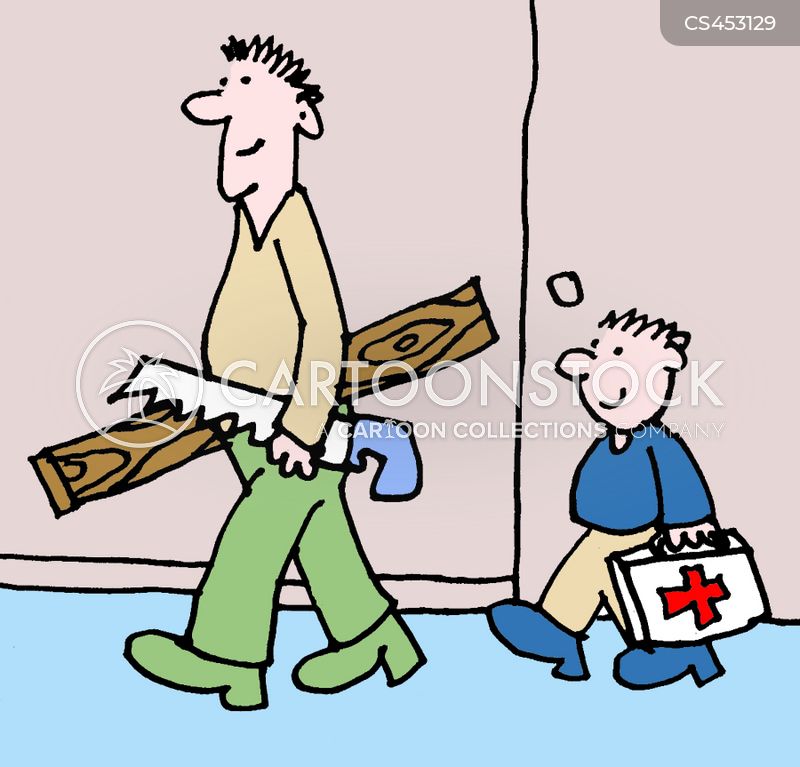
- Why's it important that I do a proper First Aid course?
- What do I do if there's bleeding?
- How do first aiders treat burns?
- What's diabetes and what can happen?
- What happens if someone breaks a bone or dislocates a joint?
- What do I do if I sprain a ligament / strain a tendon?
- What is a heart attack and what are the signs?
- What do I do if someone has a seizure?
- What can happen if someone's allergic? What's anaphalaxis?
- What's concussion?
Call 111 in New Zealand for emergency services (fire, ambulance, police)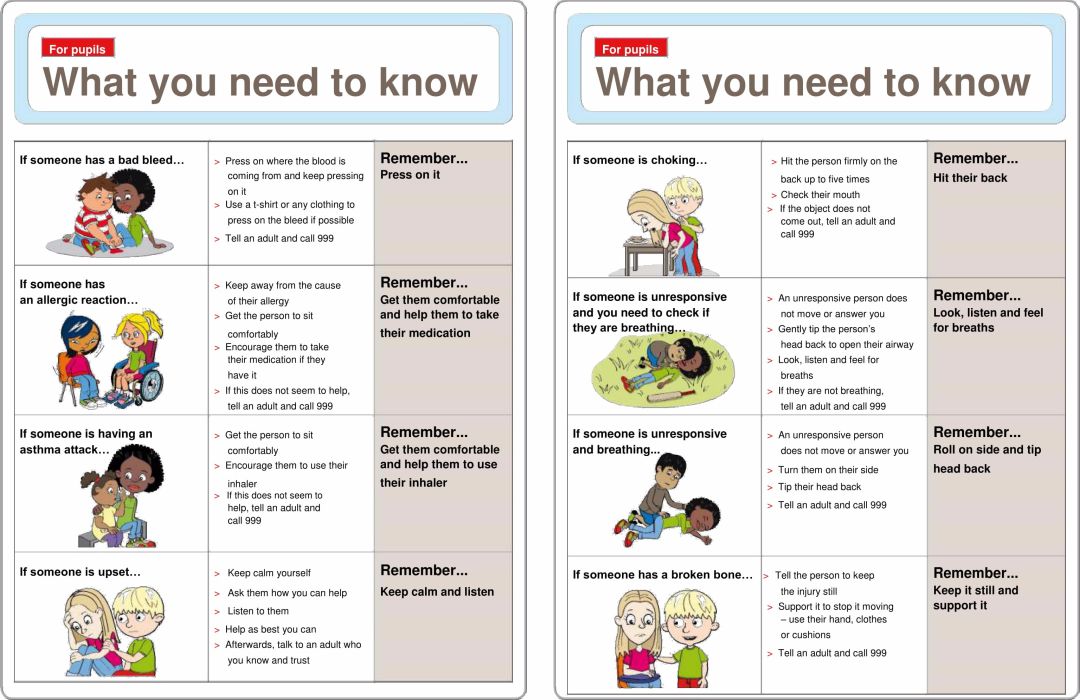
Activity
Click on the First Aid Scenarios in GClassroom -
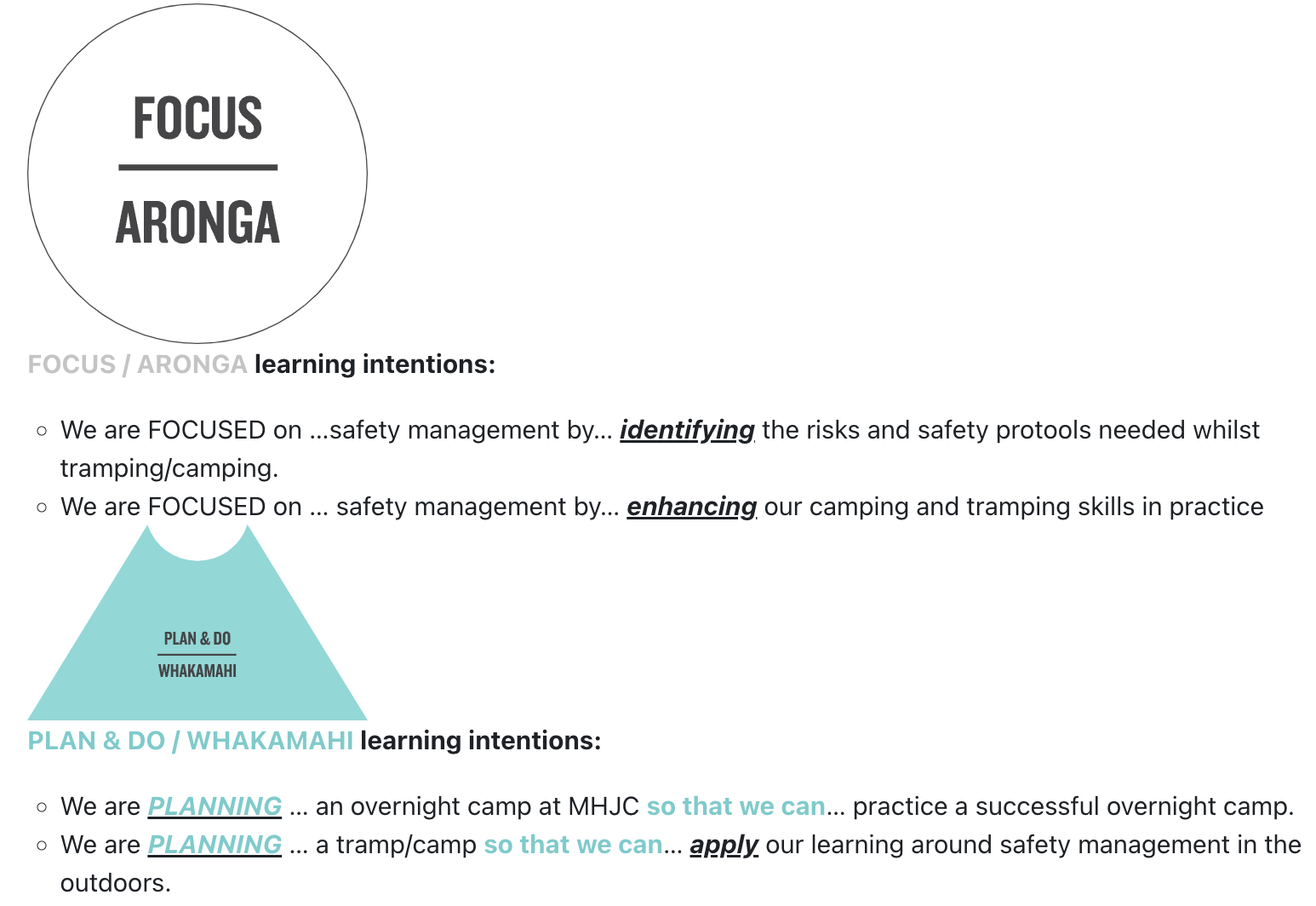
Outdoors beyond NZ
Activity:
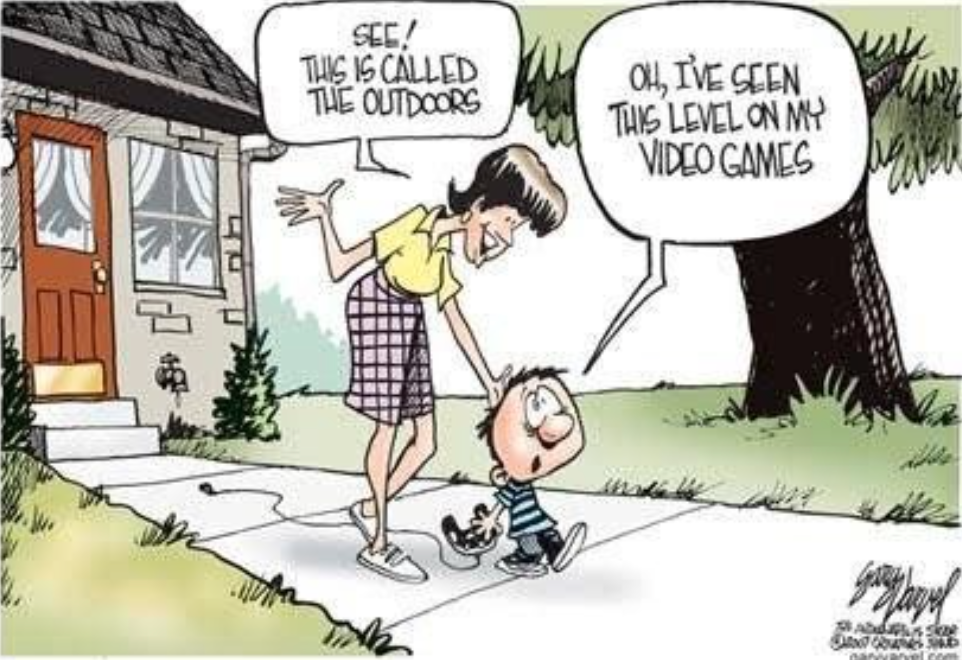 Watch these videos of extreme kayaking, solo climbing and mountain biking.On Google Maps or Google Earth, find Yosemite National Park and the rock outcrop called El Capitan, that Alex Honnold climbed without ropes.
Watch these videos of extreme kayaking, solo climbing and mountain biking.On Google Maps or Google Earth, find Yosemite National Park and the rock outcrop called El Capitan, that Alex Honnold climbed without ropes.
Activity:
Imagine that you were given $1 million to use for travel.
Make a list of places in the World that you'd like to visit and/or things that you'd like to do.
Find tour companies that offer these experiences and find out how much it might cost.
For example,
- sleep in an igloo and watch the Southern (or Northern) Lights (Aurora Australis or Borealis);
- trek across the Sahara desert on a camel
- swim with sharks
- climb Mount Everest
- etc
Outdoors in NZ
Activity:
Now think about New Zealand.
Find information about activities closer to home. For example:
- Where can you go cage diving with sharks?
- What's the highest waterfall that you can white water raft over? Where is it?
- Are there Marine Parks around NZ and can you scuba dive there?
- How much is it to stay in a Department of Conservation hut?
- How many 'Great Walks' are in NZ - where are they and which would you like to walk?
On Google Earth, try to trace the route of one of the 'Great Walks' (info on them is below)The Great Walks
-
 We're tramping from Duders Regional Park to Omana Regional Park.
We're tramping from Duders Regional Park to Omana Regional Park.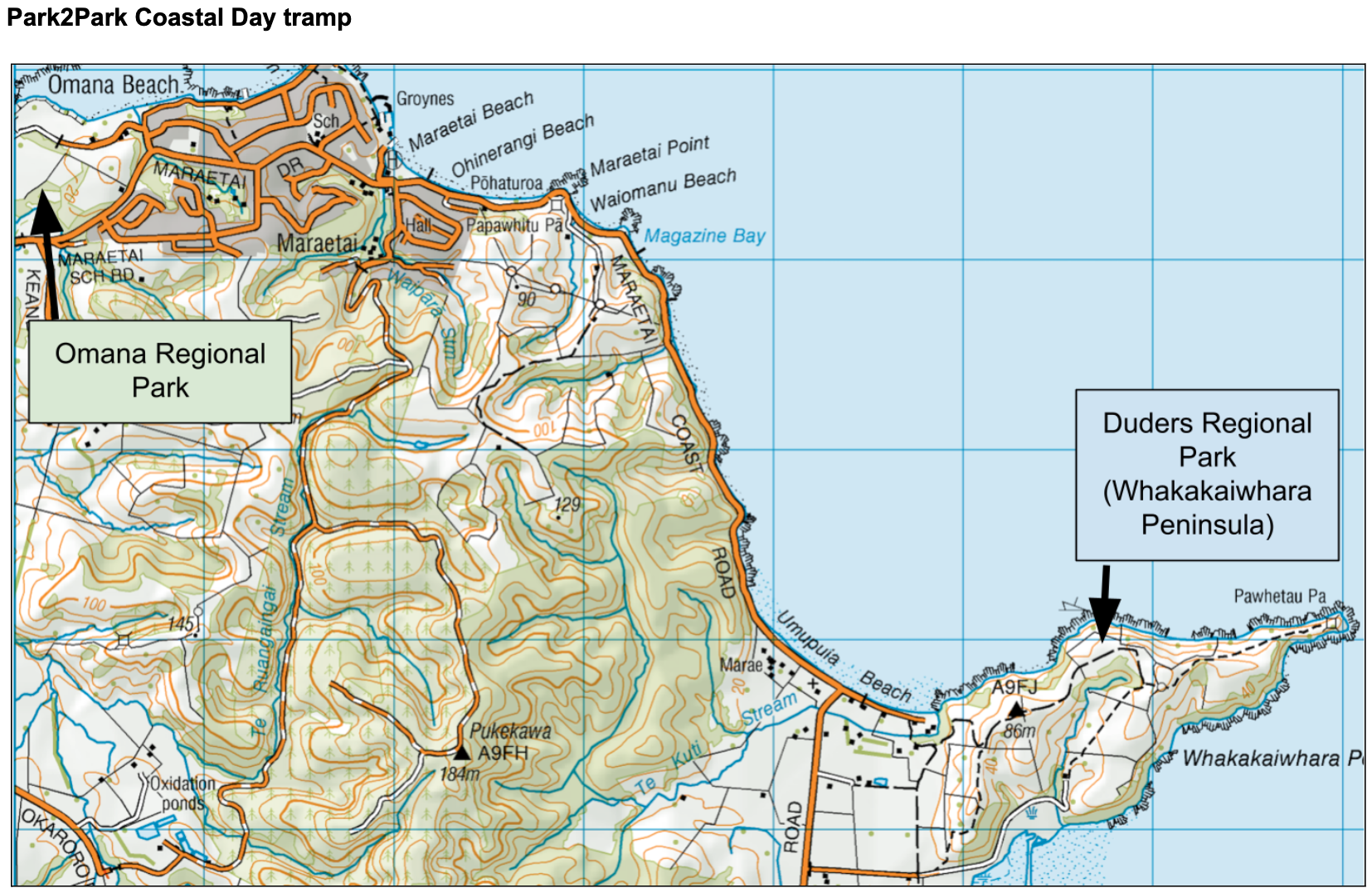
-

As a rough guide to our learning, we'll use the NCEA unit standards below. The content in these standards will help you when you complete you LEARNING JOURNAL, which will form part of your assessment.
NCEA Unit Std 425 L2 (3 credits) Experience day tramps
https://www.nzqa.govt.nz/ncea/assessment/view-detailed.do?standardNumber=425
NCEA Unit Std 426 L2 (3 credits) Experience camping
https://www.nzqa.govt.nz/ncea/assessment/view-detailed.do?standardNumber=426You might find these outlines of L3 standards useful or interesting:
Bush survival skills, Leading an overnight camp, Bushwalking knowledge & skills
https://www.nzqa.govt.nz/ncea/assessment/search.do?query=Tramping&view=all&level=03Resources
Hiking NZ website https://hikingnewzealand.com/blog/environmental-care-code/ -
MTB ABC's
- see Assignment below: - a copy will be made and this can be then edited in Google Classroom.
Introduction to Pump Track
Learning Intentions:
We are learning the ABC's of Mountain Biking
We are learning to ride our bike safely and efficiently in different conditions i.e. urban and off road.
We are learning basic bike maintenance and safety checks.
Success Criteria:
We can ensure our safety and others when on biking trips
We can use Mountain Bike terms and equipment.
We can bike confidently and competently on different trails, tracks, and road.
Discussion:
Mountain Bike Theory
Bicycle Safety
Essential skills for MTB
-
MTB ABC's
- see Assignment below: - a copy will be made and this can be then edited in Google Classroom.
Introduction to Pump Track
Learning Intentions:
We are learning the ABC's of Mountain Biking
We are learning to ride our bike safely and efficiently in different conditions i.e. urban and off road.
We are learning basic bike maintenance and safety checks.
Success Criteria:
We can ensure our safety and others when on biking trips
We can use Mountain Bike terms and equipment.
We can bike confidently and competently on different trails, tracks, and road.
Discussion:
Mountain Bike Theory
Bicycle Safety
Essential skills for MTB
-
-
Mountain Bike Theory - see Assignment in Google Classroom
ABL:
Hole in the Tarp
Trust Activity
YURT circle (link to rock climbing) -
Look at Cycling Road Code and Safety
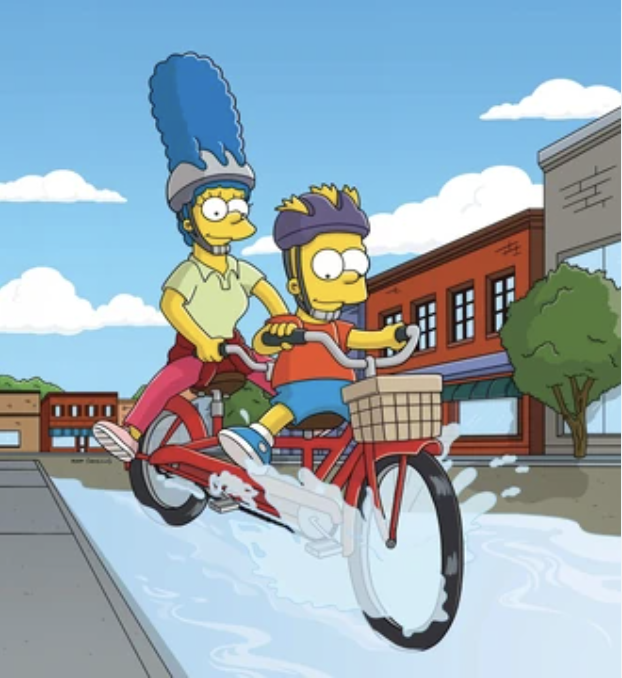
Map Pathway to Barry Curtis
Alternative can be to revisit PUMP TRACK skills to build confidence
Conferences with Assessment 1 Y9 - students to continue with Intro to Rock Climbing work or Intro to MTB assignment.
-
Single Lesson: Introduction to Rock Climbing - Google Slides and videos.
Practical Sessions at Extreme Edge:
Lesson 1 Practical: - Introduction to Rock Climbing by staff plus only using Self Belay Walls. - Students concentrate on exploring different grades of the walls, their technique and also having fun. To climb in pairs in order to help guide and support climber.
Lesson 2 Practical: - Continue to explore Self Belay Walls. Students have an introduction to Bouldering. The focus continues to be on form and efficiency when climbing.
Lesson 3 Practical: - Students Competition Day. Different Challenges to complete.
Hang Test - Students to complete a static hold on the climbing wall.
Other Tests - Pull up tests, Invisible chair etc.
Challenge Cards - Students use cards for "Challenge by Choice Activities" - See file attached
Learning Intentions
To learn safety preparations - equipment (harness, carabiners, etc)
To learn roles, responsibilities & communication of belayer & climber
To learn to climb wasting least energy, strength and stamina.
To learn the different methods & styles of recreational & sports climbingSuccess Criteria
Can work with a climbing buddy to have an enjoyable & safe climb experience
Can climb a range of basic to intermediate indoor climb routes
Can explain the grading system of routes and the equipment usedWe'll discuss:
- Some rope-work / knots
- Equipment (eg cams, chocks, belay devices)
- Meaning of vocabulary used in the sport
- Skills in climbing (especially to save forearms!)
-
See Week 5 for LI and SC
Week 6:
Class - Session
Journal Entries for Lesson 1 Rock Climbing
Teacher to continue Conferences with students from Assessment 1.
Lesson 2 Practical: - Continue to explore Self Belay Walls. Students have an introduction to Bouldering. The focus continues to be on form and efficiency when climbing.
-
See Week 5 for LI and SC
Week 7:
Class - Session
Journal Entries for Lesson 2 Rock Climbing
Also introduce the challenge cards and competition for lesson 3.
Lesson 3 Practical: - Students Competition Day. Different Challenges to complete.
Hang Test - Students to complete a static hold on the climbing wall.
Other Tests - Pull up tests, Invisible chair etc.
Challenge Cards - Students use cards for "Challenge by Choice Activities"
-
Classroom Lesson:
Students to write up Rock Climbing Lesson 3 - include detail about their learning experience and next steps.
Practical Session: - Students to Revisit Mountain Biking unit from the beginning of the term.
MTB practical experiences include:
Mission Heights Bike and Pump Track
Barry Curtis Ride and skills activity
Point View Ride - Students to plan
Optional other rides depending on confidence of group:
Pakuranga Rotary Ride
Cascades Cycle Path -
Classroom Lesson:
Students to write up MTB Lesson - include detail about their learning experience and next steps.
Practical Session: - Students to Revisit Mountain Biking unit from the beginning of the term.
MTB practical experiences include:
Mission Heights Bike and Pump Track
Barry Curtis Ride and skills activity
Point View Ride - Students to plan
Optional other rides depending on confidence of group:
Pakuranga Rotary Ride
Cascades Cycle Path

